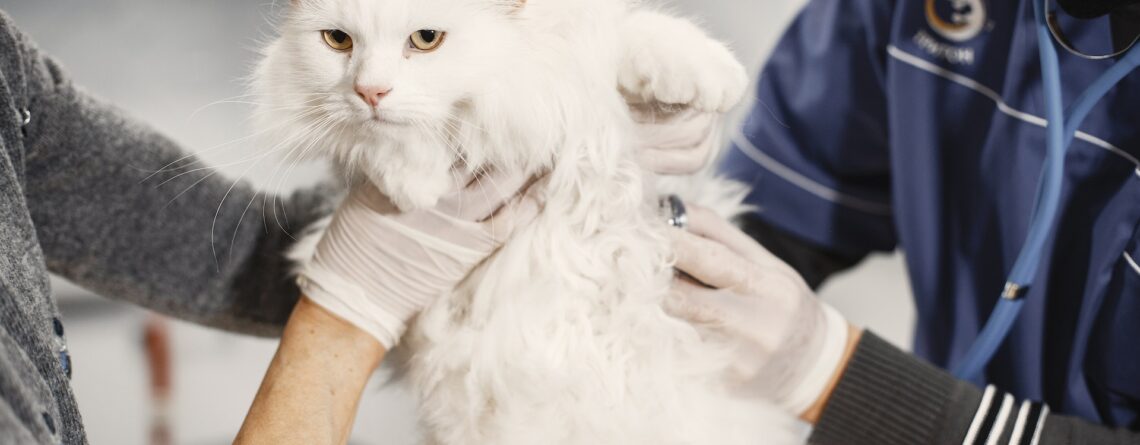Common Health Problems in Cats and How to Prevent Them
Cats are wonderful companions, but just like any other animal, they can suffer from a variety of health problems. Some of these issues can be minor and easily treatable, while others can be more serious and potentially life-threatening. As a responsible cat owner, it’s important to be aware of the most common health problems that can affect cats and take steps to prevent them.
Dental Problems
Dental problems are a common issue in cats, and can include everything from bad breath to tooth decay and gum disease. If left untreated, dental problems can lead to more serious health issues such as heart, liver, and kidney disease. To prevent dental problems, ensure that your cat has access to clean water and a balanced diet that supports dental health. Regular dental checkups with your veterinarian can also help catch any signs of dental issues early on.
Obesity
Obesity is a common health problem in cats, and can lead to a variety of other health issues such as diabetes, heart disease, and joint problems. To prevent obesity, ensure that your cat has a balanced diet and gets regular exercise. Avoid feeding your cat table scraps and high-calorie treats.
Parasites
Cats can suffer from a variety of parasites, including fleas, ticks, and worms. Parasites can cause a range of health problems, including skin irritation, anemia, and even death. To prevent parasites, ensure that your cat is on a regular flea and tick preventative medication and has regular deworming treatments.
Urinary Tract Infections
Urinary tract infections (UTIs) are a common health issue in cats, especially in older cats. UTIs can be caused by a variety of factors, including bacterial infections and bladder stones. Symptoms of UTIs in cats include frequent urination, painful urination, and blood in the urine. To prevent UTIs, ensure that your cat has access to clean water and a balanced diet that supports urinary tract health. Regular checkups with your veterinarian can also help catch any signs of UTIs early on.
Diabetes
Diabetes is a common health problem in cats, especially in overweight and older cats. Diabetes can lead to a variety of symptoms, including increased thirst, increased urination, and weight loss. To prevent diabetes, ensure that your cat has a balanced diet and gets regular exercise. Regular checkups with your veterinarian can also help catch any signs of diabetes early on.
Feline Leukemia Virus
Feline leukemia virus (FeLV) is a viral disease that can affect cats. FeLV attacks the immune system, leaving cats susceptible to other infections and illnesses. FeLV is typically spread through close contact with infected cats, such as through sharing food bowls or grooming. Symptoms of FeLV in cats can vary, but common symptoms include weight loss, lethargy, and anemia. FeLV can be prevented by vaccinating your cat and keeping them away from other cats that may be infected.
Feline Immunodeficiency Virus
Feline immunodeficiency virus (FIV) is another viral disease that can affect cats. FIV attacks the immune system, leaving cats susceptible to other infections and illnesses. FIV is typically spread through bite wounds from infected cats. Symptoms of FIV in cats can vary, but common symptoms include fever, loss of appetite, and weight loss. FIV can be prevented by vaccinating your cat and keeping them away from other cats that may be infected.
Hyperthyroidism
Hyperthyroidism is a common health problem in cats, especially in older cats. Hyperthyroidism occurs when the thyroid gland produces too much thyroid hormone. Symptoms of hyperthyroidism in cats include weight loss, increased appetite, and hyperactivity. To prevent hyperthyroidism, ensure that your cat has a balanced diet and regular checkups with your veterinarian to catch any signs of the disease early on.
Respiratory infections
Respiratory infections are common in cats, particularly in young cats or cats with weakened immune systems. Symptoms of respiratory infections can include sneezing, coughing, and runny eyes or nose. To prevent respiratory infections, make sure your cat is up-to-date on their vaccinations and keep their environment clean and free of allergens.
Psychological Problems
Cats can suffer from a variety of psychological problems, including anxiety, depression, and compulsive disorders. Symptoms of psychological problems in cats include excessive grooming, aggression, and inappropriate elimination. To prevent psychological problems, ensure that your cat has access to plenty of toys and environmental enrichment. Consider using pheromone products or medications to help manage anxiety and other psychological issues.
Want to read more about it? Click here.
Conclusion
Cats can suffer from a variety of health problems, and as a responsible cat owner, it’s important to be aware of the most common issues that can affect your furry friend. By providing your cat with a balanced diet, regular exercise, and regular checkups with your veterinarian, you can help prevent many of these health problems from occurring. Additionally, by providing your cat with plenty of toys and environmental enrichment, you can help prevent psychological problems and ensure that your cat leads a happy and healthy life.




Leave a Reply